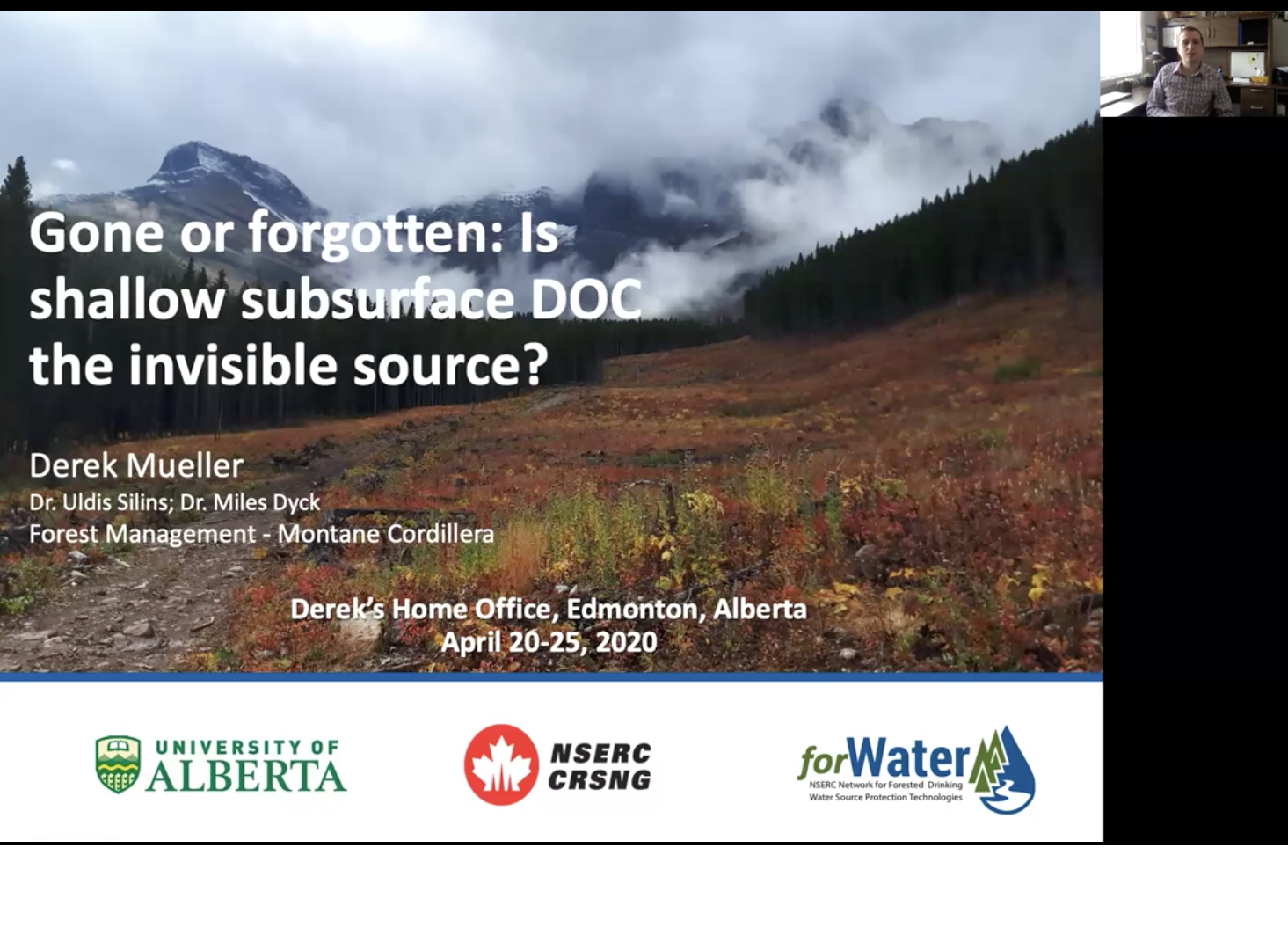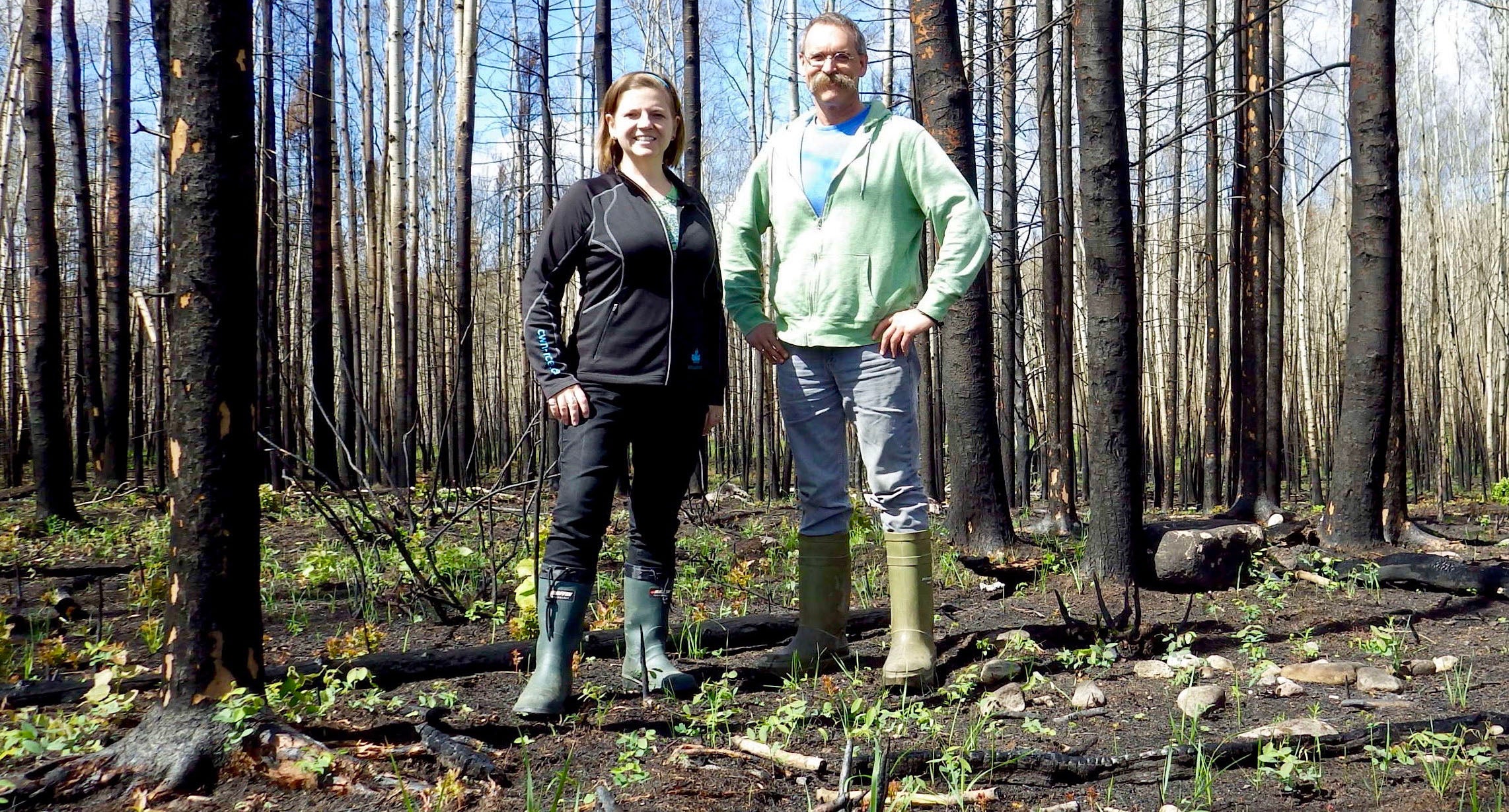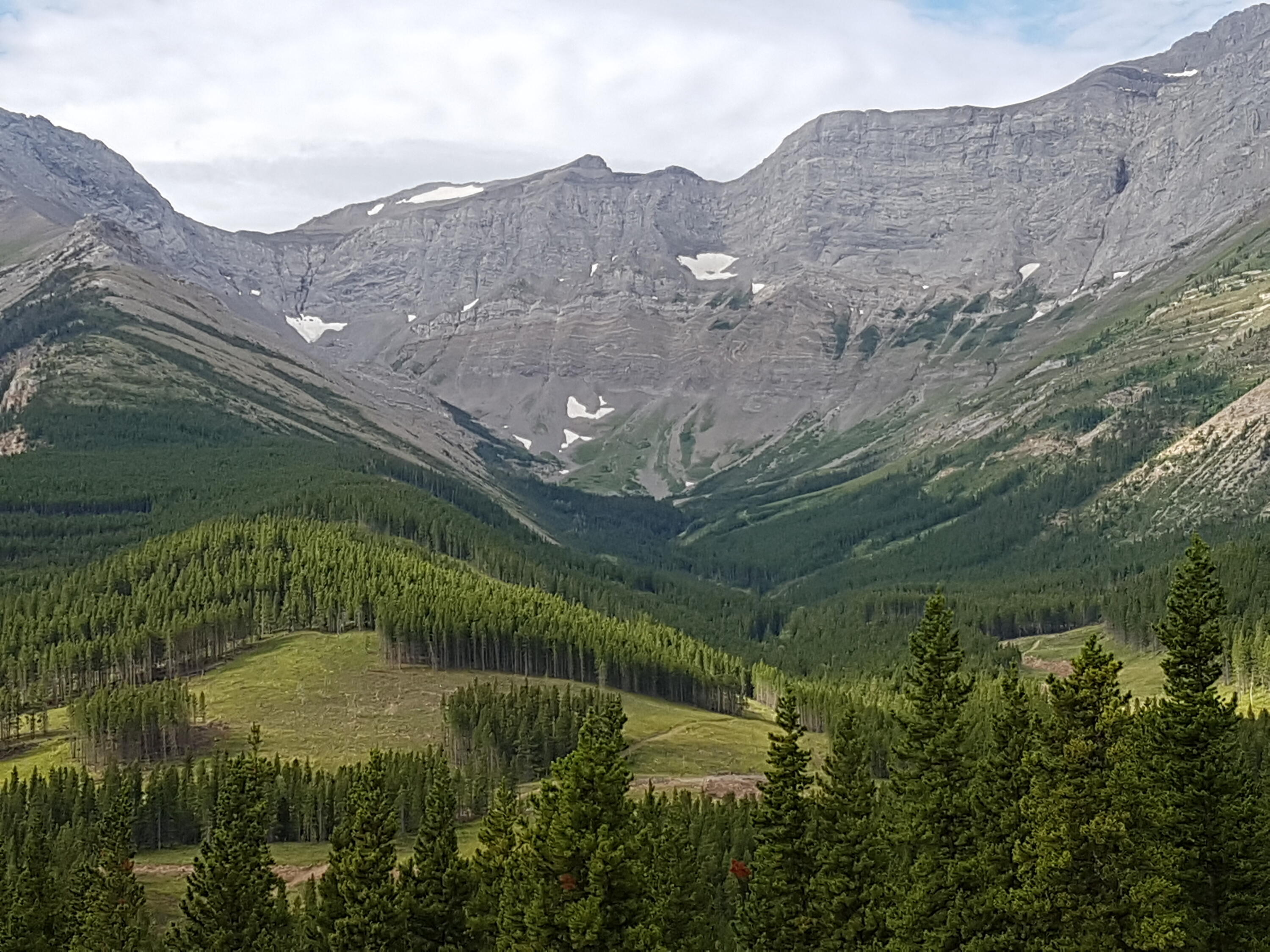In mid-March when COVID-19 caused many to work remotely, the forWater Network was well underway planning their Annual General Meeting to be held in Victoria, British Columbia. While the in-person portion of this annual event was ultimately cancelled, in its place arose a creative virtual alternative that highlighted this year’s research findings.
The virtual meeting included 3-minute video presentations by 26 students, eight research progress videos, and webinar featuring lead researchers and a Q and A session. Topics ranged from measuring dissolved organic carbon in source water to water flow studies in hummocks to cost analysis of water treatment after natural disasters.

We are starting to see the powerful impact
of transdisciplinary research collaborations that span
from forestry to drinking water treatment to public health.
Water Institute member and Principal Investigator, Monica Emelko noted “The scientific outputs generated by the forWater Network thus far will be foundational for enabling the research that is needed to develop transformational best management practices to better protect our drinking water sources and build water supply resilience in a changing climate”. Uldis Silins, co-principal investigator for the Network, added “I’m beyond thrilled to see how our findings are coming together in year 3. We are starting to see the powerful impact of transdisciplinary research collaborations that span from forestry to drinking water treatment to public health.”

Principal Investigator, Monica Emelko and Uldis Silins, co-principal investigator of the forWater network amongst the regrowth of a forest after a fire.
The forWater Network represents four research themes covering water systems from eastern to western Canada. The results that are emerging from this 5-year source-to-tap collaboration are revealing that watershed and contemporary forest management activities focused on protecting water supplies from climate change associated landscape disturbances (e.g. wildfires) can have minimal impact on drinking water source quality and quantity—in contrast to historic practices—as it flows downstream to water treatment plants and then our taps. Results from the varying landscapes across Canada are coalescing to form a very interesting narrative that will inform real and lasting change in watershed and forest management for drinking water security.
To read more about the forWater Network and its transdisciplinary research visit forwater.ca.

Southern Rockies Watershed Project site.
Listing Photo by George Roman.